From toxic food to anxiety: The dangers facing dogs over the festive season
The festive season is a jolly time of year for humans, but it can present a myriad of threats to the health and well-being of pets if their two-legged companions aren’t keeping their wits about them.
Among more commonly-known dangers like chocolate and sultanas, there’s a host of extra things capable of posing serious dangers to pets throughout the holiday period.
From heat, travel, anxiety and toxicity risks, Dr Anne Fawcett, from The University of Sydney has warned people of things they need to protect their animals from as festive celebrations kick into gear.
Dangerous food
There may be a few extra sweet treats around the home at Christmas time, which could prove highly dangerous if a dog manages to gain access to it.
The mixture of caffeine and theobromine in chocolate is enough to kill them, with darker chocolate higher in toxicity, Dr Fawcett said.
Irreversible kidney failure can be caused by grapes, raisins and sultanas and should be kept well out of reach of dogs.
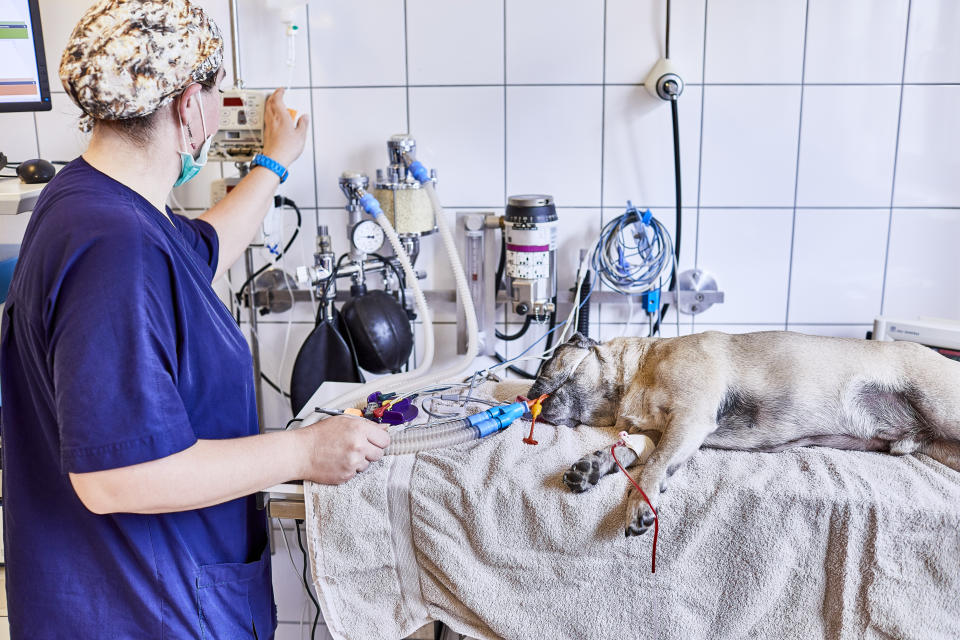
“For the same reason, animals should not be fed or have access to mincemeat pies or fruit cakes,” Dr Fawcett said.
Fatty foods like cheese, ham, pork crackling, bacon, turkey skin, lamb, sausages and the gristle off steak is also off the menu for dogs, as it can cause nasty diarrhoea and trigger life-threatening pancreatitis.
Bones can cause constipation in dogs, with cooked bones capable of shattering and causing perforation of the intestines, Dr Fawcett said.
‘Garbage can be tempting’
Onions and garlic can be toxic to dogs and cats, and can lead to life-threatening anaemia. Onion toxicity can occur in dogs after just a single onion bhaji or a few pieces straight off the barbecue.
Dramatic clinical signs including blindness can be caused in dogs who eat macadamia nuts, which can also cause gastrointestinal obstruction in small dogs and cats.
Dr Fawcett encouraged pet owners to double-bag rubbish likely to contain strong scents of food scraps, given dogs historically consumed used kebab skewers, cutlery, plastic kitchen wrap and compost.
“Food scraps and garbage can be very tempting to dogs and cats,” Dr Fawcett said.
“Dietary change alone is enough to cause vomiting and diarrhoea in some pets. If you are taking your pets along with you on holidays or to parties, bring their regular diet.”
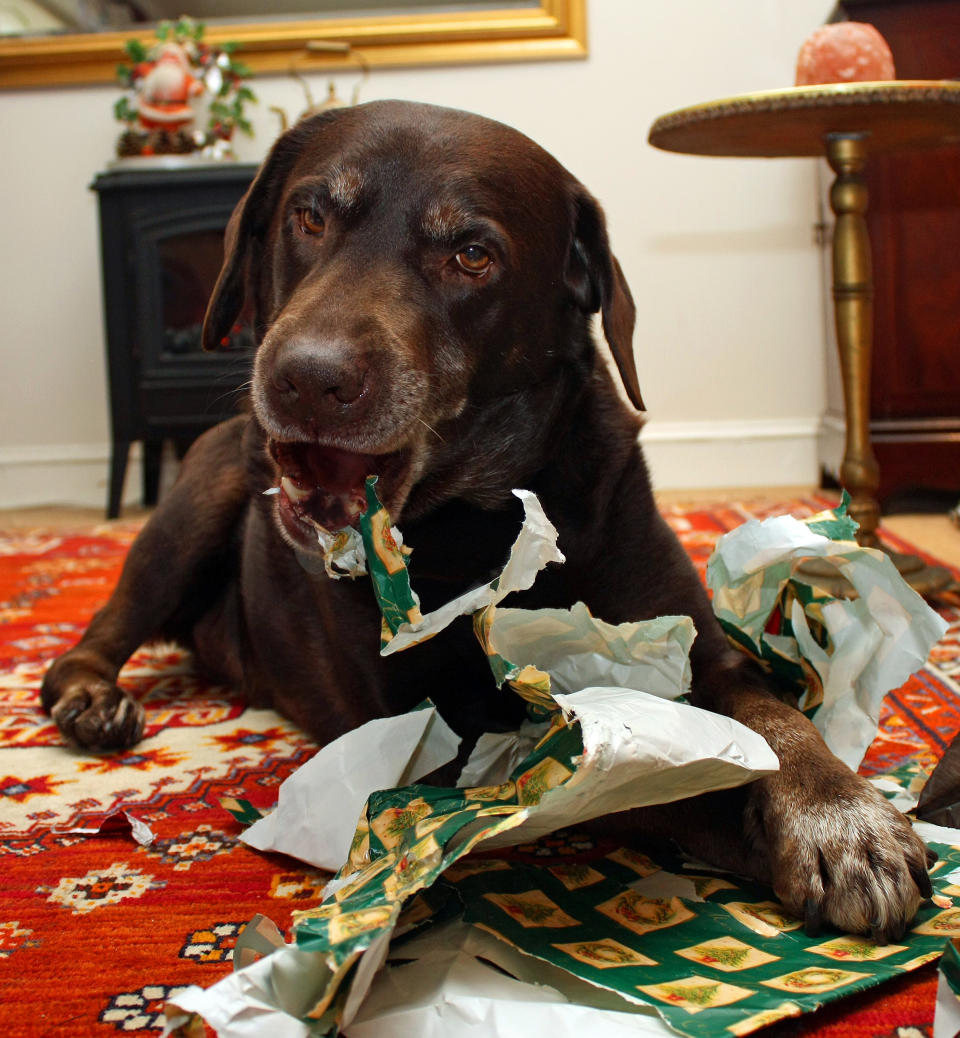
Lily plants can be highly dangerous to both cats and dogs if ingested and can even be dangerous if they are licked. Dr Fawcett said cats should be taken to an emergency vet if they are seen licking a lily.
She also encouraged people not to leave food gifts under the Christmas tree, as pets have been known to steal and unwrap packages with snacks inside.
Common chewing hazards in the holiday season include kebab sticks, cutlery coated in meaty juices, string off ham or turkey, tinsel, small toys and batteries.
Dr Fawcett said these can cause life-threatening gastrointestinal blockages and people should take their pet to their local or emergency veterinarian within two to four hours to induce vomiting.
If your pet eats something toxic
Dr Fawcett said pet owners should take their animals to the vet immediately if they suspected they ate something toxic.
Inducing vomiting soon after consumption may prevent surgery later on, Dr Fawcett said, but it needs to be done immediately as there is a short window of time where the method is effective.
“If your pet ate a food item, bring any packaging with you. If it is a plant item, bring the plant or take a photo of the plant including flowers and leaves to assist in identification,” she said.
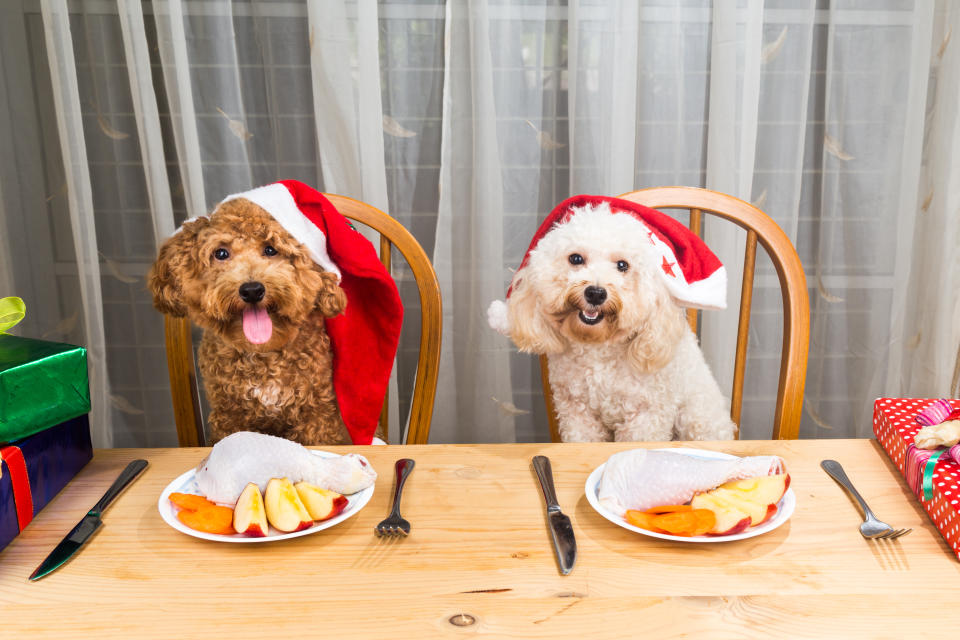
Alcohol and drugs
While it might seem obvious to keep alcohol and drugs out of reach from pets, Dr Fawcett said it was possible they could ingest either substance by licking it from their coat.
“Alcohol and recreational drugs are dangerous to companion animals and they should never be exposed to these substances. If you suspect that your pet has been exposed to alcohol or drugs, take them to your local or emergency veterinarian immediately,” Dr Fawcett said.
Festive anxiety
More people, changes in routine and an increase in loud conversations or music as well as fireworks, can be very stressful for some dogs and cats.
Dr Fawcett said owners should never force pets to be social if they are not in the mood, and always allow them a quiet escape where they can withdraw from social activities if they choose.
Some pets might be better off staying home if owners are going to someone else’s home, or even being kept elsewhere if many people are going to be at their home over Christmas.
“Pets with phobias of loud noises or fireworks may benefit from medication, but it needs to be given pre-emptively – see your vet if you suspect your pet suffers from anxiety,” Dr Fawcett said.
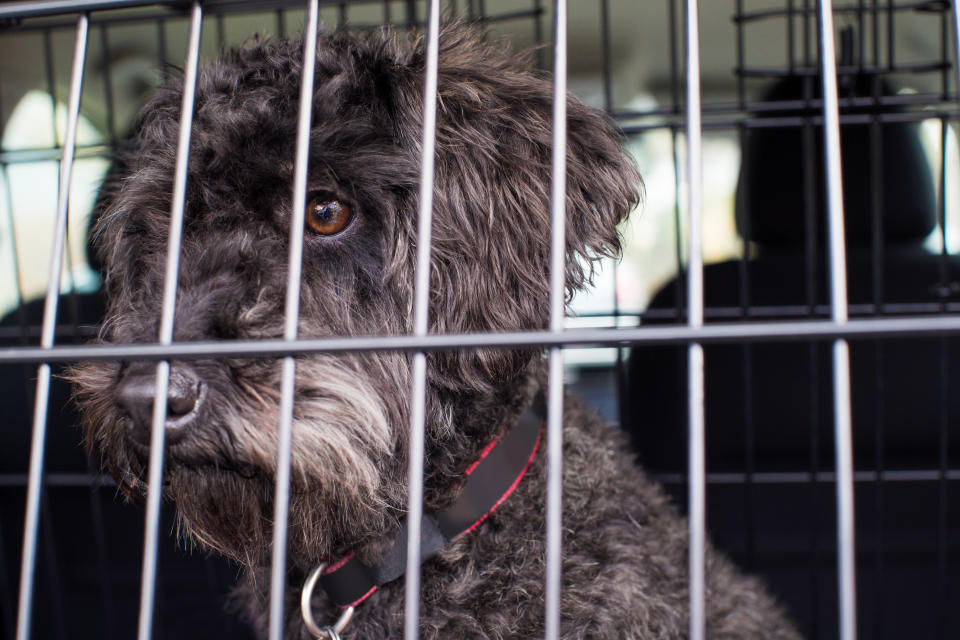
Travelling with pets
Owners setting off on long journeys in the car over the holidays might like to consult a vet if their animal is prone to motion sickness, but this should be organised well in advance, Dr Fawcett said.
They were also encouraged not to feed their pets a big meal immediately before travel, and to make sure their tick prevention is up to date.
Owners should be aware of what their closest 24 hour emergency vet will be at their holiday location, so they can be prepared if anything goes wrong.
The diet of pets should be kept consistent with what they regularly eat, with any changes capable of causing gastrointestinal upsets.
“Ensure that your contact details are up to date on the NSW Companion Animal Registry, or the relevant State or Territory Registry if travelling interstate with your pet,” Dr Fawcett said.
Heat stress
Australia is set for some extreme heat this summer which can prove fatal for dogs if they don’t have access to cool spaces and fresh water, according to Dr Fawcett.
She said all companion animals needed access to shade throughout the day, and should engage in exercise only during the cooler parts of the day.
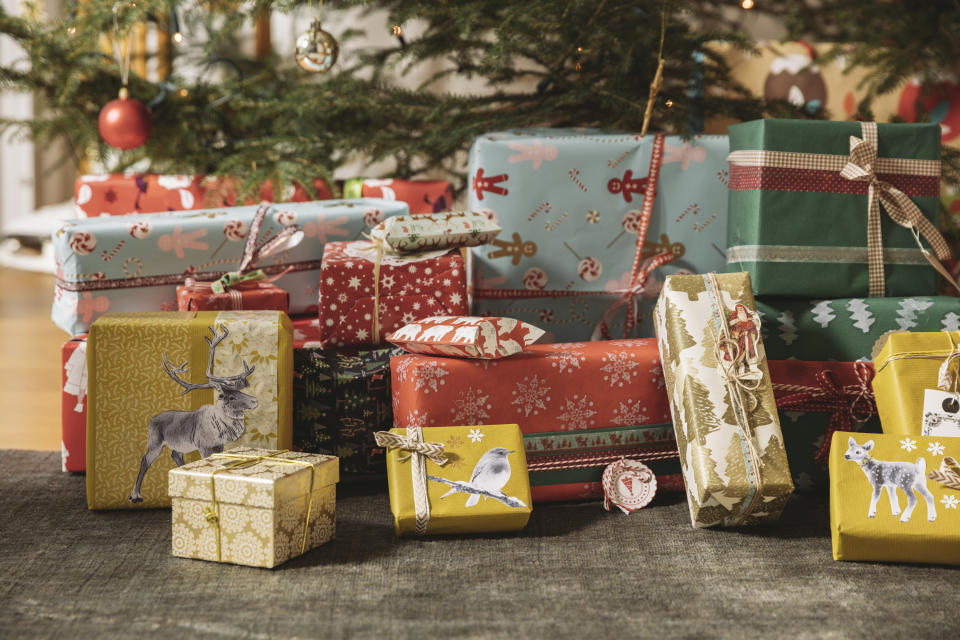
“Don’t over-exert them. Dogs are not the best judges of when they need to slow down and can die from heat stress secondary to over-exertion,” Dr Fawcett said.
Brachycephalic breeds of dogs like pugs and bulldogs are at particular risk and should be kept indoors in a cool environment during extreme heat, she said.
She added owners should never leave animals unattended in motor vehicles, or on the back of cars, and they should avoid walking dogs on hot roads or footpaths due to a risk of burning the pads of their paws.
Dangers of smoke
Bushfires continue to burn across the country, posing risks to pets if they are continually exposed to smoke.
“Dogs need regular exercise, but during high smoke and smoke haze days keep this to a minimum. Aim for ‘clean air’ breaks,” Dr Fawcett said.
She encouraged owners to avoid exercising pets outdoors at the peak of any smoke incidents, and to be aware of any pets with pre-existing airway conditions or heart disease, given they are particularly vulnerable to the effects of smoke.
Birds in hutches or aviaries need to be kept well-ventilated, and their water supply needs to be regularly . changed as it can become contaminated with ash.
“Wash your pets more regularly, as the ash can stick to feathers and fur. If your pet is displaying signs of struggling with smoke, take then to the vet,” Dr Fawcett said.
Do you have a story tip? Email: newsroomau@yahoonews.com.
You can also follow us on Facebook, Instagram and Twitter and download the Yahoo News app from the App Store or Google Play.



